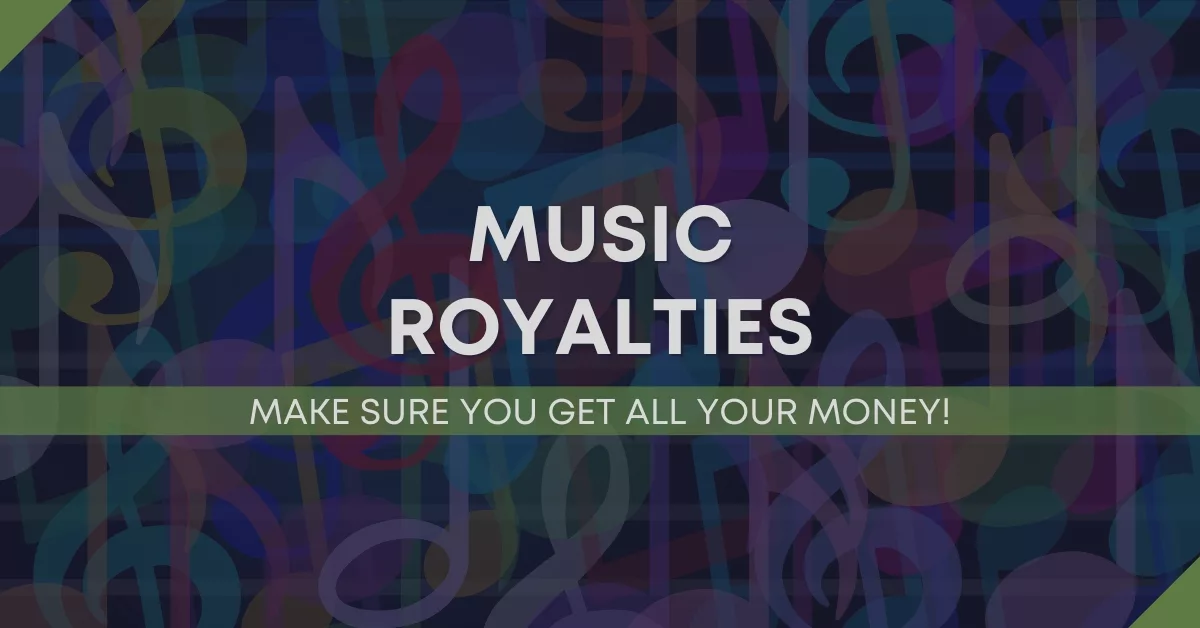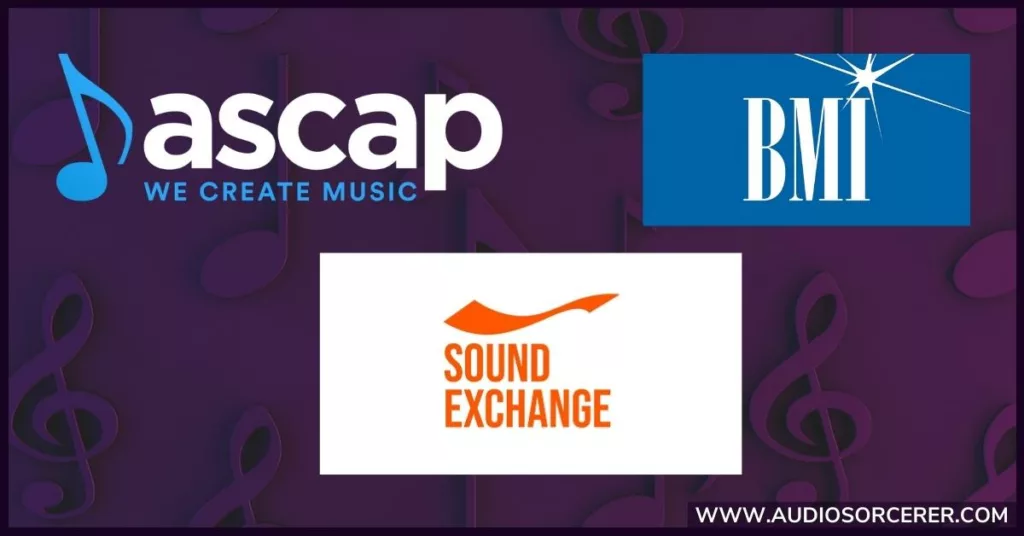
Welcome to the rollercoaster world of music royalties! These intricate elements of the music industry are as vital as the beat to your favorite jam. If you're an artist, songwriter, or budding music mogul, understanding royalties is an absolute must! Buckle up, it's time for an educational trip through the vibrant and sometimes convoluted landscape of the music business.

Like the backstage pass at a gig, music royalties provide access to the monetary rewards from sound recordings. They are payments made to the copyright holders (usually the composers, publishers, and recording artists) when their music is used or performed publicly. These royalty payments are the lifeblood of the music industry, enabling artists to continue creating the soundtracks to our lives.
But, the landscape of music royalties hasn't always been the same, just like the constantly evolving music trends. The concept of music royalties began with sheet music sales in the early 1800s, marking the first time composers received payment for the physical copies of their work.
As technology progressed, so did the sources of royalties. With the advent of the phonograph and later the radio, performance and mechanical royalties came into play. Fast forward to our digital age, where streaming services have introduced a whole new realm of digital performance royalties.
This history serves as a testament to how the music industry has constantly adapted to ensure creators are compensated for their art. As the industry continues to evolve, so will the mechanisms of generating and distributing music royalties.
Ready to dive into the deep end of our music royalty pool? Let's unpack the different types of music royalties.
Mechanical royalties are the unsung heroes of the music industry. These are the royalties generated from the physical or digital reproduction and distribution of a sound recording. Every time your record label presses a CD or someone downloads your track from iTunes, the sweet sound of mechanical royalties chimes in.
If mechanical royalties are the unsung heroes, public performance royalties are the rockstars of the music world. These royalties are paid when music is performed publicly – think radio, live concerts, or even an elevator.
Say hello to synchronization royalties, the showbiz royalty type. These royalties come into play when music is synced with visual content, like film, ads, or YouTube videos. Your music in the latest blockbuster trailer? That’s synchronization royalties stealing the limelight.
Print music royalties are the classics of the royalty world, generated when music is transcribed to a print piece, like sheet music. They may be less common these days, but they are still a big part of the symphony and orchestra worlds.
Last but not least, meet the newcomers: digital performance royalties. Born in the era of Spotify and Apple Music, these royalties are paid when music is streamed online. They are the tech-savvy, trend-setting members of the royalty clan.

Keeping track of all these royalties can be as complicated as writing a hit song! That’s where collection agencies come in.
PROs (ASCAP, BMI, SESAC) ensure that composers, songwriters, and music publishers receive their compensation by collecting royalties when their music is played publicly. Check out our article: BMI Vs ASCAP | Who's The Best Performing Rights Organization?
Mechanical Rights Organizations, such as the Harry Fox Agency, handle the distribution of mechanical royalties. They ensure artists are paid when their music is reproduced physically or digitally.
Digital Performance Rights Organizations, like SoundExchange, are the movers and shakers in the world of digital performance royalties. They ensure that royalties from digital platforms find their way back to the artists.
Understanding how royalty payments are distributed can be as exhilarating as nailing that high note in your favorite song. Let's talk about how and when you get paid.
Distributing music royalties is like an ensemble performance – each player gets their part. Payments are typically split among various parties involved: the recording artists, songwriters, publishers, and record labels. Each receives a share of the royalties in accordance with their contribution and the agreements in place. For instance, a singer may receive a portion of performance royalties for a live rendition, while the songwriter earns from the same song played on the radio.
Anyone in the music business knows that it runs on contracts. These written agreements significantly influence the distribution of royalties. A record label might have negotiated a larger share, a songwriter might have secured a higher percentage, or maybe even some session musicians got a piece of the pie. The importance of understanding these contracts cannot be overstated, as they can greatly impact an artist's earnings from their music.
In this modern digital age, streaming platforms and online music stores play a significant role in distributing royalties. Each digital play, purchase, or download translates into royalty payments. However, these platforms often have their own unique payment models, which can be based on total listens, user subscriptions, or advertising revenue. As a result, the shift towards digital music consumption has fundamentally reshaped the ways in which royalties are generated and distributed in the music industry.

Understanding the law surrounding music royalties is something that can't be overlooked. As laws dictate how are our country runs, they also oversee how music business deals are enforced. Let's first discuss copyright.
Copyright laws provide the foundation for music royalties. They grant exclusive rights to the creators of a piece of music, allowing them to earn money whenever their music is used or performed. This includes rights to reproduce, distribute, and perform the music. Knowing your rights as a sound recording copyright holder is key to ensuring you receive all royalties owed to you.
When others want to use or perform your music, they'll need to obtain a license. As discussed earlier, there are different types of licenses for different uses, including mechanical licenses, performance licenses, and synchronization licenses. These licenses stipulate the terms of use and royalty rates, making them another crucial aspect of music royalties.
Just like the music industry, the world of music royalties isn't without its challenges and trends.
One of the biggest challenges is the complexity of the royalty system itself. With multiple types of royalties and various collection agencies, it can be difficult for artists to navigate and ensure they're receiving all they are owed. Additionally, the rise of digital music has led to lower royalty rates from streaming, which has been a point of contention for many artists.
As the music industry continues to evolve, so too will the landscape of music royalties. Increased transparency and fairness in royalty distribution are major points of discussion. With advancements in technology, like blockchain and smart contracts, there's potential for more efficient and transparent royalty collection and distribution systems. Additionally, the continued growth of digital music consumption is likely to drive further changes in how digital performance royalties are calculated and paid.
Related Article: Sync Agents: How They Help Musicians And Songwriters Make Money
There you have it – a whirlwind tour of the world of music royalties. From the humble mechanical royalty to the trendy digital performance royalty, these elements are all crucial players in the grand symphony of the music industry. Understanding them is key to mastering the art of the music business.
Did this post strike a chord with you? If so, please considering subscribing to our blog for more music business information, knowledge, and advice!
Music royalties are the primary way artists, songwriters, and other rights holders are paid for their work. They ensure that creators receive compensation every time their music is used or performed, which in turn supports their ability to continue creating music.
Different types of music royalties are collected by different organizations. Performance royalties are collected by Performing Rights Organizations (PROs) like ASCAP, BMI, and SESAC. Mechanical royalties are collected by organizations like the Harry Fox Agency, and digital performance royalties are collected by SoundExchange.
The split of music royalties varies depending on contracts and the type of royalty in question. Generally, they are divided among the recording artists, songwriters, publishers, and record labels involved in a song's creation and distribution.
As a performer of a cover song, you would typically be eligible for digital performance royalties when the song is streamed. However, the mechanical royalties and synchronization royalties would go to the songwriter or their publisher. It's important to obtain the proper licenses before releasing a cover song to ensure royalty distribution is handled correctly.
Streaming services like Spotify, Apple Music, and others pay royalties based on a pro-rata share system. They distribute a significant portion of their revenue to rights holders (record labels, distributors, independent artists, etc.), who then distribute these funds based on the specific agreements they have with artists. The actual per-stream rate can vary widely, depending on the platform and the listener's country.
"Some of the links within this article are affiliate links. These links are from various companies such as Amazon. This means if you click on any of these links and purchase the item or service, I will receive an affiliate commission. This is at no cost to you and the money gets invested back into Audio Sorcerer LLC."